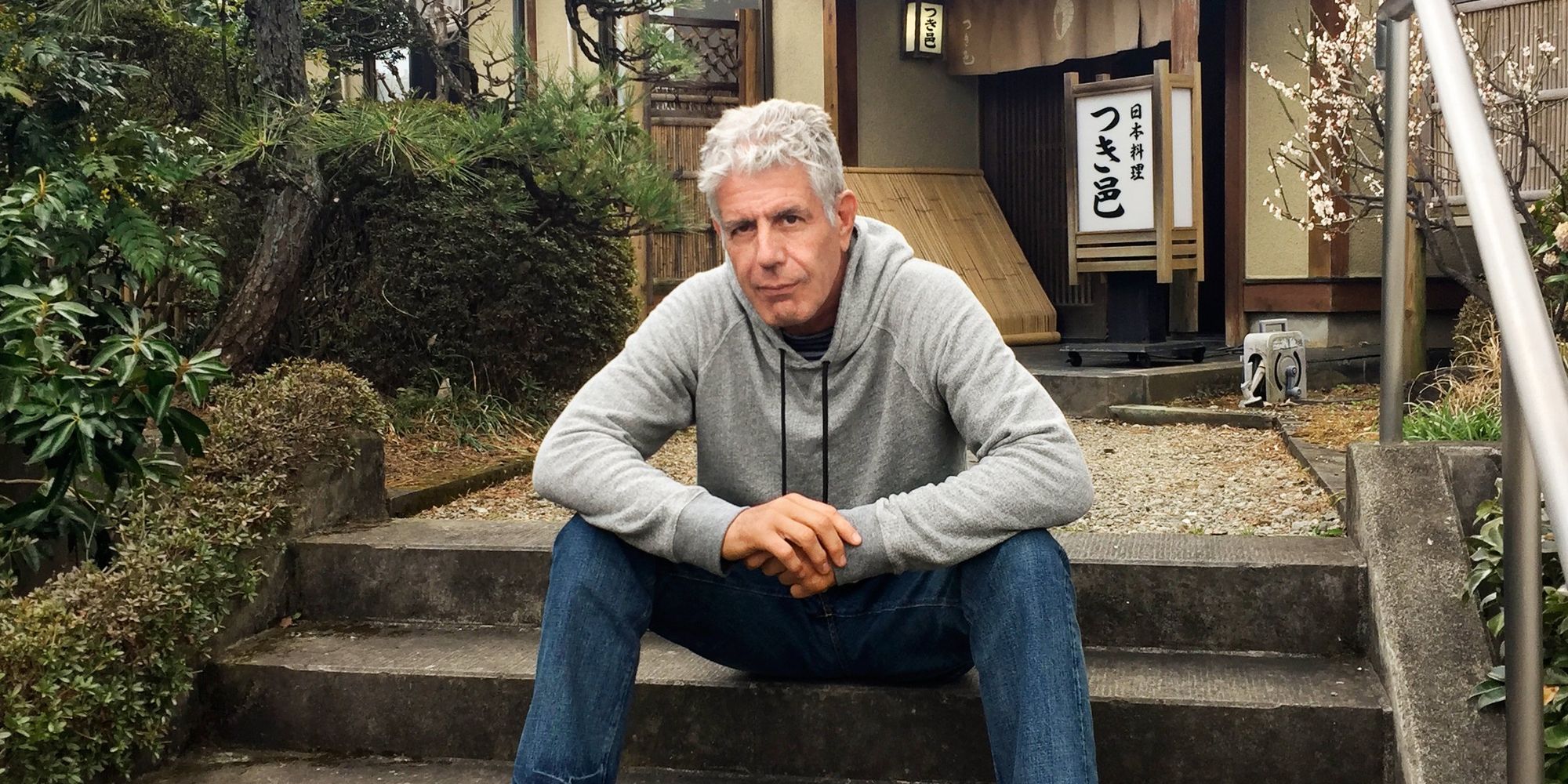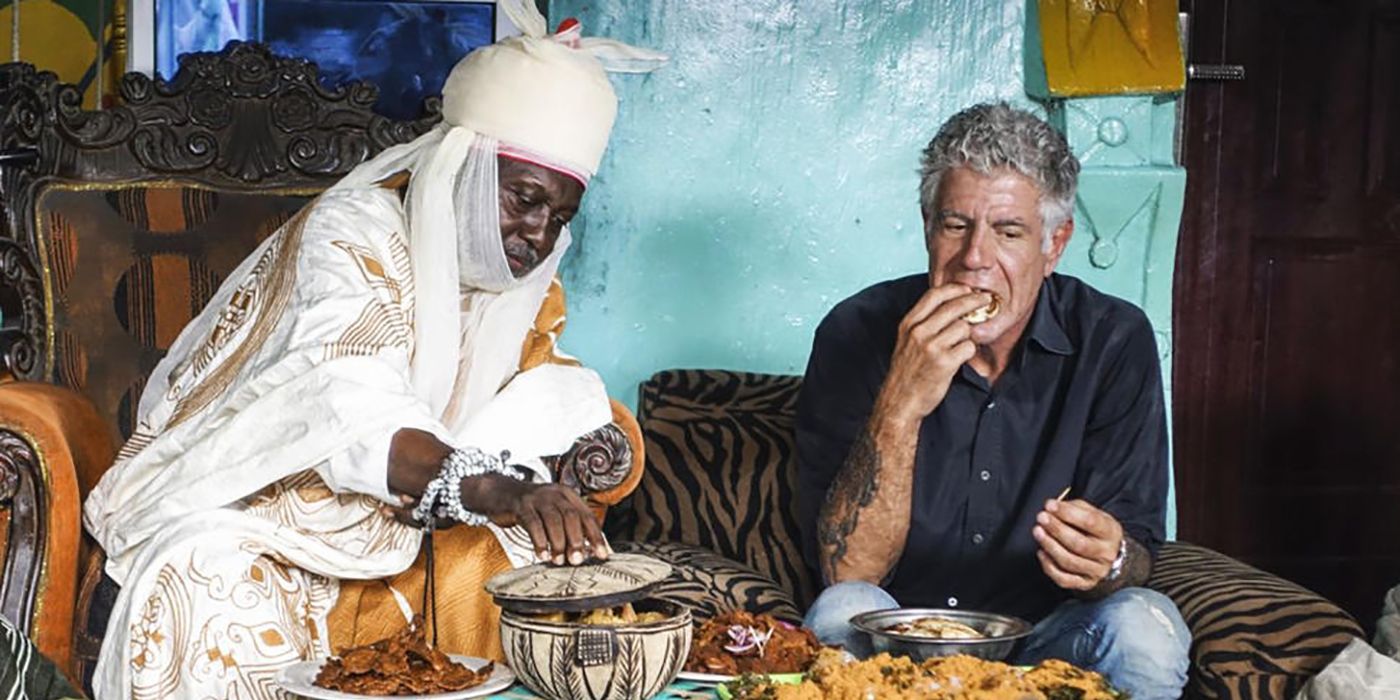
The highly anticipated Anthony Bourdain documentary, Roadrunner, made waves when it was revealed that AI was used to fake the late celebrity chef’s voice. The celebrated food documentarian shocked the world when he committed suicide in 2018 at the age of 61. Roadrunner: A Film About Anthony Bourdain, directed by Morgan Neville, follows the life and career of Bourdain, the venerated celebrity chef, travel and food documentarian, author, and television host.
Bourdain was known for combining his knowledge of international cuisine and culture with explorations of the human condition and sociopolitical history. Among his most popular works are his TV series No Reservations and Parts Unknown, as well as his NYT bestselling memoir Kitchen Confidential, which jump-started his media career. However, with the success of Kitchen Confidential came the public knowledge of Bourdain’s destructive past. Bourdain struggled with a laundry list of various drug addictions for years, and often battled with mental health illnesses. Now, Bourdain’s life is chronicled in Neville’s newest documentary, which seeks to explain why and how the beloved foodie became who he was.
Reported by Variety, Neville revealed that he utilized AI to fake Bourdain’s voice in Roadrunner. Neville, who is known for directing the acclaimed documentaries 20 Feet From Stardom and Won’t You Be My Neighbor, explained that it was only used for three lines in the film that he had found in print but Bourdain had never spoken. Over ten hours of Bourdain’s voice were fed into an AI model, but that didn’t solve everything—Neville and the AI technicians were also tasked with figuring out subtleties, such as Bourdain’s tone, which changed depending on the context, from narrator-like speech in his television series, to regular conversational talking.
Speaking to GQ Magazine, Neville explained the process to Brett Martin. He said, “We fed more than ten hours of Tony’s voice into an AI model. The bigger the quantity, the better the result. We worked with four companies before settling on the best. We also had to figure out the best tone of Tony’s voice: His speaking voice versus his “narrator” voice, which itself changed dramatically of over the years. The narrator voice got very performative and sing-songy in the “No Reservation” years. I checked, you know, with his widow and his literary executor, just to make sure people were cool with that. And they were like, Tony would have been cool with that. I wasn’t putting words into his mouth. I was just trying to make them come alive.”

However, this choice is not entirely beloved by all. Neville defended the choice, explaining that he got permission from Bourdain’s widow and his literary executor. Neville also explains that those who gave him permission also thought Bourdain would have been okay with it, but not everyone agrees. The use of AI incurred some backlash for the otherwise critically acclaimed film which, at one point, boasted a 100% score on Rotten Tomatoes. The reveal sparked a larger debate about documentarian ethics and whether or not the AI model of Bourdain’s voice was, at the very least, questionable. Many fans and film critics took to social media to express their distaste with the overall idea of digitally synthesizing Bourdain’s voice both without telling the audience beforehand and to bring Bourdain’s voice to words he never said—even if he did write them.
This debate is not new to pop culture, not even by a long shot, though it is more commonly had in conversations about music regarding posthumous album and song releases. Seemingly, audience’s response to the ethics of posthumous releases and material alterations are case-by-case. In this case, Neville did not know Bourdain personally, making this particular situation a little more complex. Despite the backlash, Roadrunner’s overall critical reception is still high, providing an in-depth look into one of pop culture’s most missed intercultural communicators.
Source: Variety
https://ift.tt/3sT7u9z
July 18, 2021 at 12:37AM




